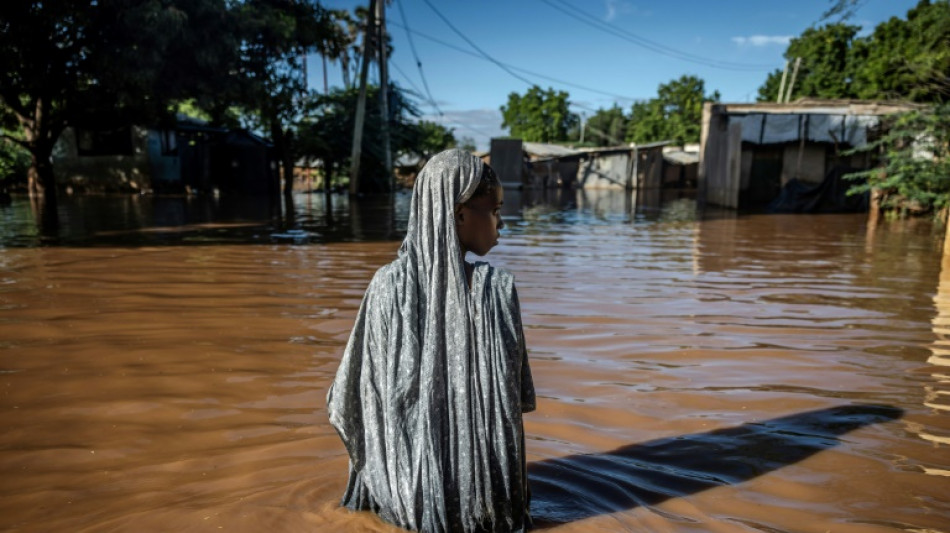
-
 Rodgers misery as Texans rout Steelers to advance in NFL playoffs
Rodgers misery as Texans rout Steelers to advance in NFL playoffs
-
Morocco's Bono 'one of best goalkeepers in the world'
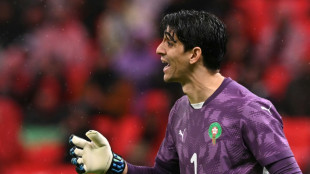
-
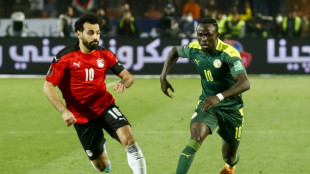 Salah and Mane meet again with AFCON final place on the line
Salah and Mane meet again with AFCON final place on the line
-
French museum fare hikes for non-European tourists spark outcry
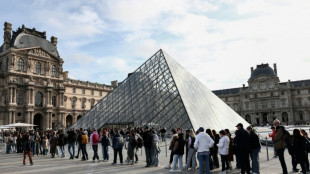
-
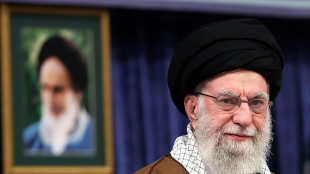 In 'big trouble'? The factors determining Iran's future
In 'big trouble'? The factors determining Iran's future
-
Osimhen finds AFCON scoring touch to give Nigeria cutting edge
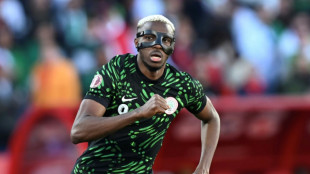
-
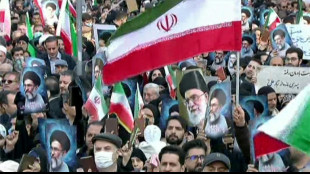 Trump announces tariffs on Iran trade partners as protest toll rises
Trump announces tariffs on Iran trade partners as protest toll rises
-
Sabalenka favourite at Australian Open but faces Swiatek, US threats

-
 Gay Australian footballer Cavallo alleges former club was homophobic
Gay Australian footballer Cavallo alleges former club was homophobic
-
Trump has options on Iran, but first must define goal
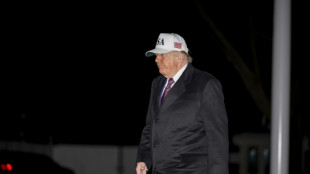
-
 Paris FC's Ikone stuns PSG to knock out former club from French Cup
Paris FC's Ikone stuns PSG to knock out former club from French Cup
-
Australia's ambassador to US leaving post, marked by Trump rift
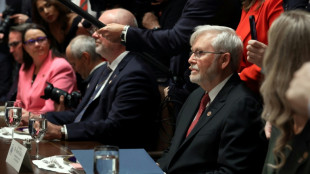
-
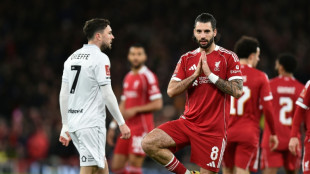 Slot angered by 'weird' Szoboszlai error in Liverpool FA Cup win
Slot angered by 'weird' Szoboszlai error in Liverpool FA Cup win
-
Szoboszlai plays hero and villain in Liverpool's FA Cup win
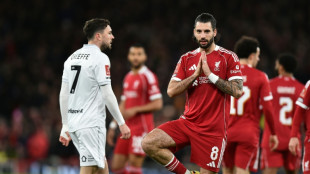
-
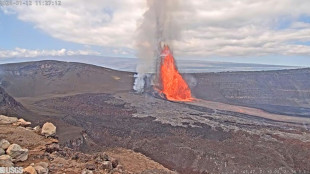 Hawaii's Kilauea volcano puts on spectacular lava display
Hawaii's Kilauea volcano puts on spectacular lava display
-
US stocks at records despite early losses on Fed independence angst
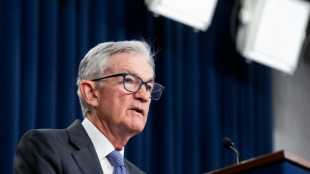
-
 Koepka rejoins PGA Tour under new rules for LIV players
Koepka rejoins PGA Tour under new rules for LIV players
-
Ex-France, Liverpool defender Sakho announces retirement
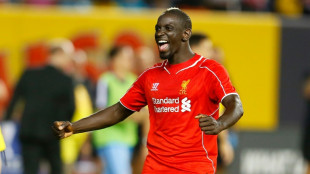
-
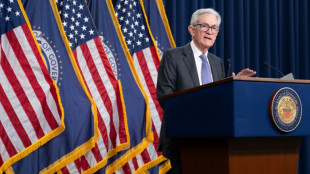 Jerome Powell: The careful Fed chair standing firm against Trump
Jerome Powell: The careful Fed chair standing firm against Trump
-
France scrum-half Le Garrec likely to miss start of Six Nations

-
 AI helps fuel new era of medical self-testing
AI helps fuel new era of medical self-testing
-
Leaders of Japan and South Korea meet as China flexes muscles
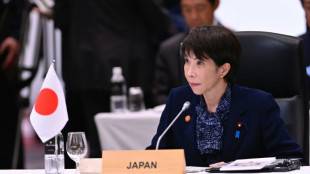
-
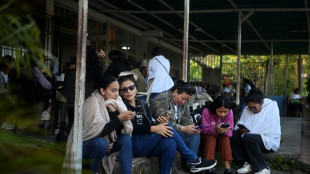 Trump sets meeting with Venezuelan opposition leader, Caracas under pressure
Trump sets meeting with Venezuelan opposition leader, Caracas under pressure
-
Australia captain Alyssa Healy to retire from cricket
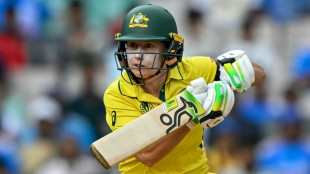
-
 US 'screwed' if Supreme Court rules against tariffs: Trump
US 'screwed' if Supreme Court rules against tariffs: Trump
-
NATO, Greenland vow to boost Arctic security after Trump threats

-
 Israel to take part in first Eurovision semi-final on May 12
Israel to take part in first Eurovision semi-final on May 12
-
How Alonso's dream Real Madrid return crumbled so quickly

-
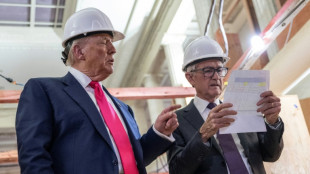 Ex-Fed chiefs, lawmakers slam US probe into Jerome Powell
Ex-Fed chiefs, lawmakers slam US probe into Jerome Powell
-
Former Panama leader on trial over mega Latin America corruption scandal
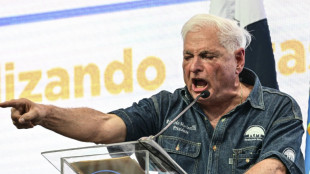
-
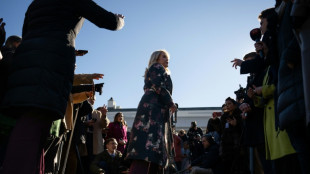 Trump keeping Iran air strikes on the table: White House
Trump keeping Iran air strikes on the table: White House
-
Paramount sues in hostile bid to buy Warner Bros Discover

-
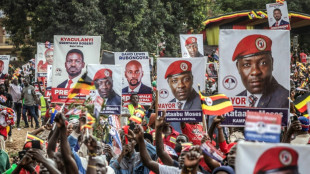 Ugandan opposition leader Bobi Wine warns of protests if polls rigged
Ugandan opposition leader Bobi Wine warns of protests if polls rigged
-
Airbus delivers more planes in 2025

-
 Alonso leaves Real Madrid, Arbeloa appointed as coach
Alonso leaves Real Madrid, Arbeloa appointed as coach
-
UK pays 'substantial' compensation to Guantanamo inmate: lawyer
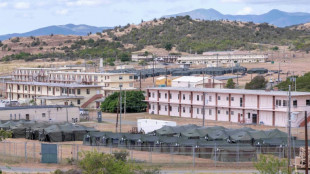
-
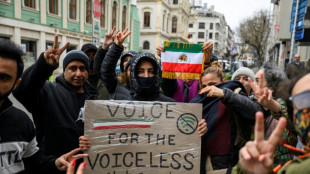 Iran protest toll mounts as government stages mass rallies
Iran protest toll mounts as government stages mass rallies
-
Gold hits record high, dollar slides as US targets Fed
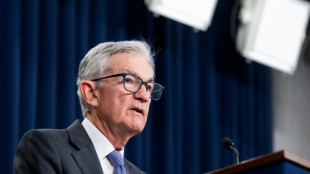
-
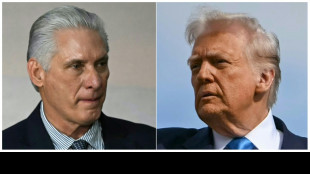 Cuba denies being in talks with Trump on potential deal
Cuba denies being in talks with Trump on potential deal
-
Scientists reveal what drives homosexual behaviour in primates

-
 Venezuela releases more political prisoners as pressure builds
Venezuela releases more political prisoners as pressure builds
-
15,000 NY nurses stage largest-ever strike over conditions

-
 Rosenior plots long Chelsea stay as Arsenal loom
Rosenior plots long Chelsea stay as Arsenal loom
-
Zuckerberg names banker, ex-Trump advisor as Meta president

-
 Reza Pahlavi: Iran's ex-crown prince dreaming of homecoming
Reza Pahlavi: Iran's ex-crown prince dreaming of homecoming
-
Venezuela releases more political prisoners
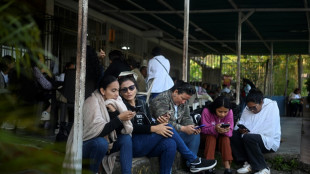
-
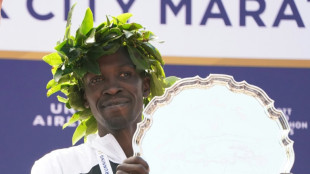 Kenya's NY marathon champ Albert Korir gets drug suspension
Kenya's NY marathon champ Albert Korir gets drug suspension
-
US prosecutors open probe of Fed chief, escalating Trump-Powell clash
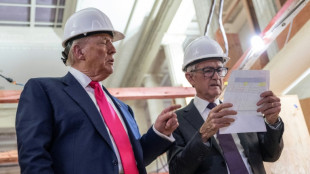
-
 Russian captain in fiery North Sea crash faces UK trial
Russian captain in fiery North Sea crash faces UK trial
-
Carrick is frontrunner for interim Man Utd job: reports
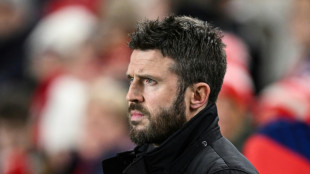

COP29 fight looms over climate funds for developing world
The developing world needs trillions of dollars in climate aid, but who should pay for it? Wealthy nations? Big polluters? Countries that got rich burning fossil fuels? All of the above?
A fight over this question looms at crucial negotiations next month as China and other major emerging economies come under pressure to chip in for climate action in poorer countries.
It is hoped a new deal can be struck at the UN COP29 climate conference to greatly lift financial assistance to countries least able to reduce carbon emissions and adapt to global warming.
The present bill of $100 billion a year is footed by a list of countries that were the richest and most industrialised at the time the UN climate convention was written up in 1992.
These donors -- including the United States, the European Union, Canada, Japan and others -- agree more money is needed, and intend to keep paying "climate finance" where it is needed most.
But they want others to share the burden, specifically developing countries that have become more prosperous and polluting in the decades since the original donor list was drawn up.
China –- today the world's largest polluter and second-largest economy –- is the obvious target, but Singapore and oil-rich Gulf states like Saudi Arabia could also come under scrutiny.
It is "entirely fair to add new contributing parties, given the ongoing evolution of economic realities and capabilities", the United States wrote in an August submission to the UN Framework Convention on Climate Change (UNFCCC).
- 'Bad faith' -
Diplomats from other developed countries have echoed this, arguing that the contributor list is based on outdated notions of rich and poor, and anyone who can pay should pay.
Some have proposed revised criteria against which potential contributors might be judged, such as income levels, purchasing power or their emissions of planet-warming greenhouse gases.
Calls to widen the donor base are deeply unpopular and have sparked heated exchanges in the months before COP29, which is being hosted in oil-and-gas-rich Azerbaijan, itself classified as a developing country.
Donors have been accused of forcing the matter onto the negotiating table while refusing to engage on the central question of how much they intend to pay.
For some involved "this was the literal definition of negotiating in bad faith", said Iskander Erzini Vernoit from the Imal Initiative for Climate and Development, a think tank based in Morocco.
It has "taken up a lot of airtime, and a lot of oxygen", he told AFP.
"For the sake of all of the poorest, most vulnerable countries of the world, it's not fair to hold the whole thing hostage."
Developing countries are pushing for the strongest possible commitment at COP29 to ensure adequate funding for clean energy projects, defensive sea walls and other climate adaptation measures.
Negotiators are nowhere near landing a concrete figure, but some developing countries are calling for over $1 trillion annually.
In a UNFCCC submission in August, the EU warned "the collective goal can only be reached if parties with high GHG-emissions (greenhouse gas) and economic capabilities join the effort".
- Tough talk -
For developing countries, who pays is non-negotiable: the 2015 Paris climate agreement reaffirmed that developed countries disproportionately responsible for global warming to date pick up the tab.
In a joint statement in July, China, India, Brazil and South Africa strongly rejected "attempts by developed countries to dilute their climate finance legal obligations under international law".
Azerbaijan's chief negotiator Yalchin Rafiyev told AFP in September that the gap between the United States and China over the issue was "narrowing", with a "softening" of stances on both sides.
China, like some other developing countries, actually pays climate finance, it just does so on its own terms.
Between 2013 and 2022, China paid on average $4.5 billion a year to other developing countries, the World Resources Institute (WRI) wrote in a September paper.
This amounted to roughly six percent of what developed countries paid over the same period, said the US-based think tank. China is not required to report this to the UNFCCC, and it is not counted toward the collective target.
Analysts say any formal additions to the donor list at COP29 are very unlikely, though some countries may agree to voluntary contributions in support of the broader goal.
M.Qasim--SF-PST



